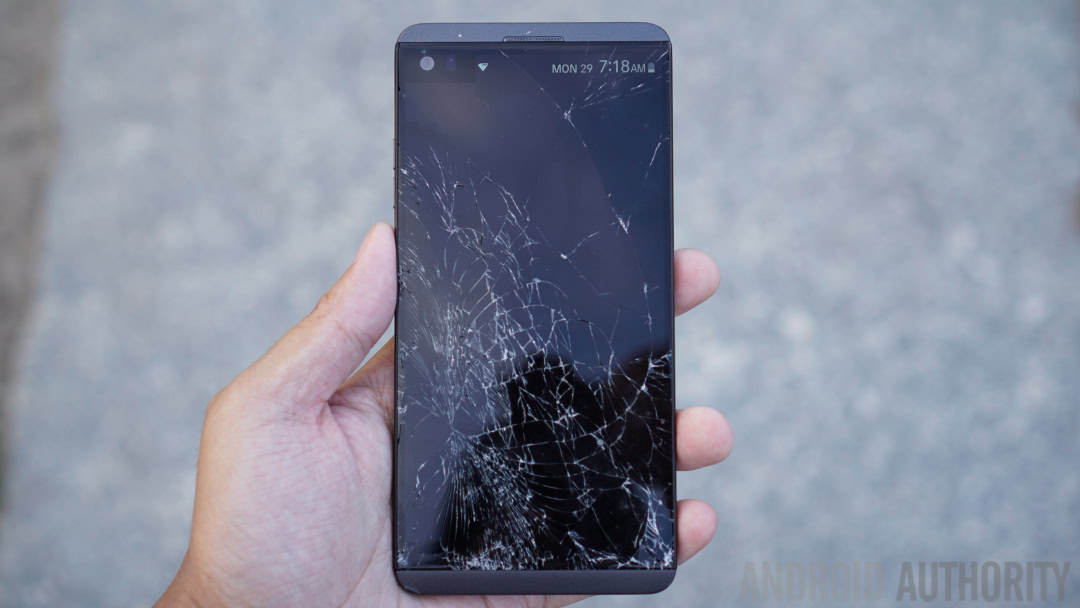Affiliate links on Android Authority may earn us a commission. Learn more.
California officially has the Right to Repair Act on its table

- The Right to Repair Act is on the table in California, the state where the largest tech companies call home.
- If passed, the Right to Repair Act would be a game changer for consumers and the environment globally, not just in California.
- Major tech companies lobby hard against the right to repair, because it ultimately will hurt their bottom lines.
Have you ever tried to repair your smartphone? If you haven’t, we’ll give you a little heads-up: it is incredibly complicated. Not only do you need special tools just to get the thing open so you can access the internal hardware, but the layout of the hardware and the way each piece is connected seems to be intentionally designed to make it impossible to repair and put back together. Not only that but in many cases just opening up your smartphone immediately voids the warranty.
The Right to Repair Act hopes to make it illegal for companies to prevent or inhibit people from repairing their devices on their own, and also require those companies to support the third-party repair industry. 17 states have bills on the table right now related to the right to repair, and now California officially joins them.
While it’s terrific that the other 17 states are doing what they can, California joining the fight is especially noteworthy because some of the most significant tech companies in the world are headquartered there, including Apple and Google. If the Right to Repair Act made it into law in California, it would be a real game-changer for everyone around the world, not just in California.
If you own an iPhone and it breaks in some way, you have one option: take it to Apple to get it repaired or replaced.

Currently, if you own an iPhone and it breaks in some way, you have one option: take it to Apple to get it repaired or replaced. You can’t fix it yourself (voids warranty), and you can’t take it to a third-party repair center (also voids warranty). Even if you wanted to fix it yourself, you would need proprietary screwdrivers and other tools just to fix it, not to mention special materials to glue everything back together.
If the Right to Repair Act passes in California, Apple and other smartphone manufacturers would be forced to support consumers repairing devices on their own. This would mean a combination of redesigning how smartphones are assembled (i.e., the battery couldn’t be glued to tiny working parts for no reason) and making it easy for consumers to obtain tools and detailed instructions on how to fix fundamental problems.
Additionally, the third-party repair companies around the United States would have to get similar support. And the biggest change would be that repairing your smartphone or having someone else fix it wouldn’t automatically void the warranty.
Large tech companies like Apple, Microsoft, and AT&T have fought right to repair legislation via lobbying efforts.

Large tech companies like Apple, Microsoft, and AT&T have fought right to repair legislation via lobbying efforts in other states. Now that the fight is on their home turf, we can expect the lobbying to increase exponentially.
Why don’t tech companies want you to repair your devices? As far as smartphones go, it all comes down to sales: if you can’t repair your phone, you have to buy a new one when it fails. Why pay a few hundred dollars to have Apple fix your iPhone’s broken screen when you can just upgrade to a brand new phone for a few hundred dollars more?
Right to repair will save consumers money and, more importantly, prevent landfill waste.
If people start repairing their devices, they’ll hold onto them longer, which will significantly hurt the smartphone industry. But it will save consumers money and, probably, more importantly, prevent landfill waste from spiraling even more out of control.
To learn more about right to repair standards and how they benefit consumers, check out this report from Repair.org from August last year.